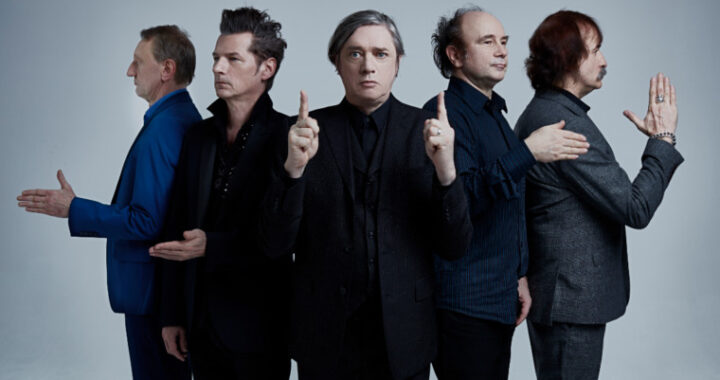For those who might have missed it, Einstürzende Neubauten hasn’t been making industrial punk for quite some time now. What nobody could have foreseen was that since their inception, they also managed to initiate a remarkable artistic development by exploring other perspectives. Over the years, the atonal metal scraping and pneumatic drills were accompanied, and even supported, by more intricate lyrics and a stronger sense of melody. Intellect and reason found more and more companionship with emotion and melancholy.
Nevertheless, Neubauten continues to create music using ‘instruments’ in the form of objects, preferably salvaged, transformed and electrically amplified. Despite embracing a more song-oriented approach, the band has remained loyal to punk aesthetics. They even released several albums by asking fans to sponsor the recordings, a precursor to today’s crowdfunding.
Dada
The punk ethos is emphasized by the fact that from the beginning, the Berliners drew inspiration from European art expressions. During a concert in Heerlen, the Netherlands in 2018, Bargeld holds a drinking cup against an old gramophone record spinning on a drill. At one point, fellow band member N.U. Unruh dresses up as Hugo Ball, complete with a plastic white cape and tall hat. Ball was the creator of Dada in 1916, an experimental anti-art movement that engaged with theater, visual arts, and other forms of expression in an ironically mocking way.
This show originated from their Lament performance project; an idiosyncratic sound construction centered around World War I. Bargeld believes that this war has never entirely passed. He views the period as a prelude to the Europe we live in today. According to him, after the devastation and aftermath of the war, the cultural and philosophical currents that characterized the Enlightenment in Europe ended, creating fertile ground for the rise of communism and fascism.
Thus, it is not surprising that Bargeld has an ambivalent view of Berlin. In the old song Die Befindlichkeit des Landes he describes how through a certain way of building, people want to suppress or hide all kinds of memories. “As long as I live, Berlin is a construction site. If you want to make money in Berlin, you should get into construction.” On the most recent album Alles In Allem he attempts to revive the city through personal memories and dreamlike imagery.
History
Even in these dreams, history is ever-present. A poignant moment is when Bargeld, while musing, bids farewell to Rosa Luxemburg in Am Landwehrkanal. Luxemburg was the murdered political activist and heroine of the left-wing movement in Germany. In 1919 her lifeless body was dumped in the water. In the menacing Grazer Damm he suddenly observes “noise and people in costumes”. He recalls his youth in the southwest of Berlin while strolling along the boulevard in the district of Schöneberg, where architectural remnants from the Nazi era still exist.
A captivating song is about the district of Wedding, which serves as a stopover to the tranquil and resigned Tempelhof. The eponymous airport was one of the largest in Europe in 1926. Since 2008 it has been used as a city park. But Bargeld remembers the place as an abandoned area where weeds grew between the stones.
“We no longer live here” he whispers in the vocal and sound experiment Zivilisatorisches Missgeschick. This work, which begins with a blaring siren, could have easily appeared on Kollaps from 1981, their debut album on which Bargeld used to scream his lungs out. Over the years he has matured from Halber Mensch to a full-fledged singer and lyricist. “Halber Mensch, geh weiter, in jede Richtung, wir haben Wahrheiten für dich” (“Half a human, go on, in every direction, we have truths for you”), he meaningfully sang in the 1980s. Bargeld understands better than anyone that artistic life goes beyond the time-bound depth of punk and manifestos: he uses metaphors to reflect a fusion of dream and reality.
Nevertheless, more than forty years after the founding of Einstürzende Neubauten, a sense of threat and ominousness still prevails. The lyrics increasingly oscillate between delusion and reality. What remains is the nostalgia and solace of memory – an imaginative and musical portrayal of memories of a home that may no longer even exist.

